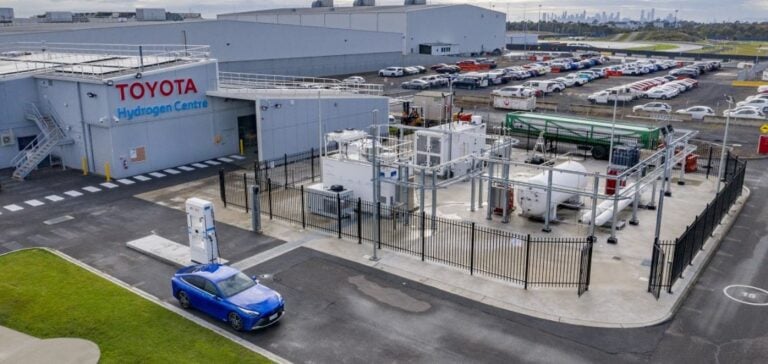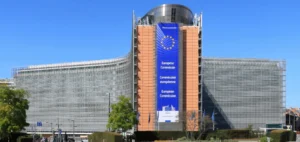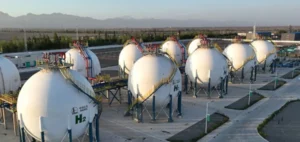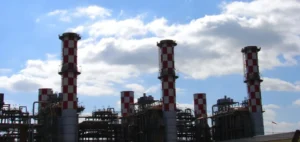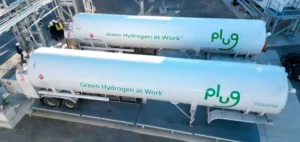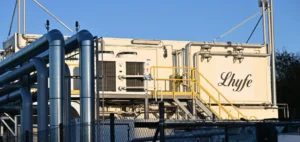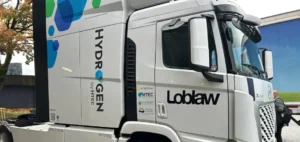Australia is positioning itself as a key player in the renewable hydrogen sector, with production ambitions reaching 15 million tonnes per year by 2050.
This initiative is part of a renewed national strategy announced by the Minister for Climate Change and Energy, Chris Bowen.
The country aims to develop a hydrogen industry that could not only meet domestic demand, but also open up significant export opportunities.
The strategy, based on technological advances and market developments, is designed to capitalize on export opportunities while supporting the energy transition.
As part of this strategy, a partnership has been established with Germany to develop renewable hydrogen supply chains.
This partnership is supported by A$660 million in funding under the H2Global program, which aims to secure purchase contracts for Australian hydrogen producers.
Chris Bowen pointed out that this initiative is part of a series of existing collaborations between the two nations, including the Hydrogen Agreement and the HySupply and HyGate projects, which aim to strengthen commercial and technological ties.
Production targets and government support
The Australian government has also announced a budget of A$8 billion to support hydrogen development as part of the “Future Made in Australia” plan.
This funding is intended to support the creation of 10 to 20 major projects, both for export and domestic production.
These projects are expected to achieve an electrolysis capacity of at least 5 GW by 2030, producing over a million tonnes of hydrogen a year.
This approach aims to establish Australia as a world leader in renewable hydrogen.
The strategy also includes ambitious export targets, with a baseline of 200,000 tonnes per annum of renewable hydrogen by 2030, and the potential to expand to 1.2 million tonnes per annum.
Among the flagship projects, the Central Queensland Hydrogen Hub stands out, with export forecasts reaching 17.2 billion Australian dollars.
These initiatives aim to position Australia as a key supplier to the global hydrogen market.
Production costs and future prospects
The strategy highlights the current production costs of renewable hydrogen, estimated at between A$5 and A$10 per kilogram.
However, these costs are expected to fall significantly by 2050, with renewable energy costs forecast to fall by 40-60% and electrolyser costs by 88-94%.
These developments are essential to make Australian projects competitive on the global market.
Analyses indicate that hydrogen production costs could fall below $2 per kilogram by 2050 in many regions, placing Australian projects among the world leaders.
Reducing the cost of renewable energy is key to establishing viable hydrogen businesses in Australia.
The strategy also includes financial incentives, such as the A$4 billion Hydrogen Headstart program and a new $2 per kilogram tax incentive for hydrogen production.
Analysis of market trends
Australia is in a favorable position, with more than 20% of the world’s announced hydrogen projects located on its territory.
The total value of these projects is estimated at over A$200 billion.
This dynamic is reinforced by the growing demand for renewable hydrogen on international markets, particularly in Europe and Asia, where countries are seeking to diversify their energy sources and reduce their carbon footprint.
Hydrogen production costs in Australia are already competitive with other regions.
For example, hydrogen produced in Western Australia by alkaline electrolysis was valued at $3.63 per kilogram, while the cost of production in Japan reached $7.51 per kilogram.
These figures illustrate Australia’s potential to become a key supplier to the global hydrogen market, particularly if forecasts of lower costs materialize.
Prospects for international collaboration
The partnership with Germany, along with other international collaborations, underlines the importance of renewable hydrogen in global energy strategies.
Guaranteed purchase agreements and financial support mechanisms are essential to encourage investment in this emerging sector.
Chris Bowen said that these initiatives are aimed at building strong commercial relationships and facilitating access to European markets for Australian producers.
Growth prospects for Australia’s hydrogen industry are promising, with projects underway that could transform the country’s energy landscape.
The national strategy, incorporating elements of financial support and international partnerships, aims to create an environment conducive to innovation and competitiveness in the hydrogen sector.
Future developments in this field could have significant implications for the Australian economy and for the global energy transition.


